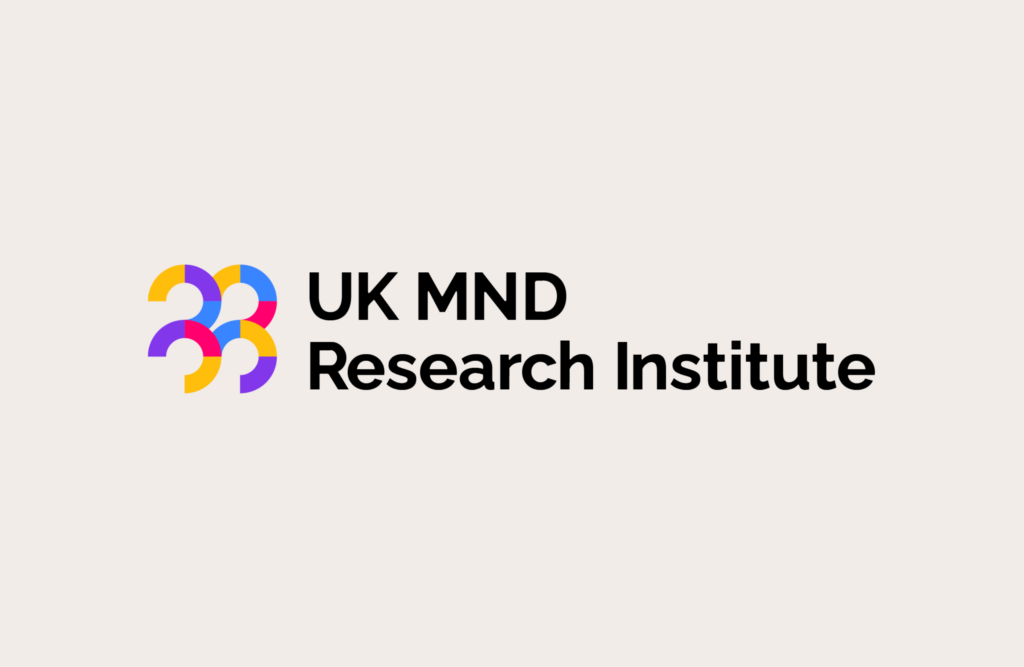What is MND
Find support
I have MND
I am supporting someone
Get involved
Research
About MND Scotland

The new UK Motor Neuron Disease Research Institute, or UK MND RI, aims to discover new treatments that could ultimately mean MND becomes a curable condition. MND Scotland has played an integral role in the creation of the institute.
People with MND are at the core of the Institute, which brings together a virtual network of MND labs, clinical centres and researchers carrying out world leading MND research across the UK, It is co-directed by MND clinician researchers Professor Ammar Al-Chalabi at King’s College London and Professor Chris McDermott at the University of Sheffield.
Peer-reviewed research programmes within the institute are funded by MND Scotland, the MND Association, My Name’5 Doddie Foundation, medical research charity LifeArc, the National Institute of Health and Care Research (NIHR) and Medical Research Council (MRC).
MND is a neurodegenerative disease affecting the nerve cells in the brain and spinal cord. People progressively lose voluntary movement and need complex care. Around one third of people with MND die within a year of diagnosis, and more than half within two years. Although it appears rare, MND will affect 1 in 300 people in the UK – every day in the UK, six people are diagnosed and six people die with MND.
There are currently no treatments to cure MND, and just one licensed drug for MND in the UK, which has only modest effects. As a result the research to hunt for a cure being done within the Institute is vital.
As part of the Institute, the team of doctors, clinicians, scientists and people with MND, together with charities and other funders, will work together in a more coordinated way than ever before, to speed up drug discovery and drug development.
The team want to take new scientific discoveries, ‘translate’ that knowledge into new approaches to treatment, and then test those potential treatments in clinical trials.
Dr. Jane Haley MBE, director of research at MND Scotland, said: “MND Scotland’s vision is a world without MND and the launch of the UK MND Research Institute is a pivotal moment for MND research in the UK. It is an outstanding example of partnership working – with people affected by MND, charities, the UK government and researchers all pulling together to create an integrated research environment to drive forward the search for treatments for MND. By working together, we will enable change.”
Professor Ammar Al-Chalabi, co-director of the new UK MND Research Institute and Professor of Neurology and Complex Disease Genetics at King’s College London said: “MND is devastating, and we desperately need to find meaningful treatments as fast as possible. This virtual MND Research Institute means MND researchers across the UK and beyond can work together as a team, joining up lab science with clinical practice to advance research more quickly towards an effective therapy.”
Professor Christopher McDermott, co-director of the new UK MND Research Institute, Professor of Translational Neurology at the University of Sheffield said: “We’re delighted to be launching the Institute today – it marks a significant milestone in our journey towards an effective treatment for people living with MND. The Institute partnership has had early success in securing government funding to undertake a new experimental medicine study to rapidly screen drugs at a pace and scale not seen before. We are looking forward to driving forward our work to discover new treatment strategies and ultimately new drugs that stop MND in its tracks.”
David Setters, who is living with MND, was part of the #United2EndMND campaign said: “Today’s launch is so welcome. An Institute brought together by collaboration to accelerate the arrival of treatments, is just what patients want to see. So many people have worked hard to make this happen. I am optimistic this will be the springboard to a better future, offering hope to patients and those affected by MND. We hope it will change the conversation between neurologists and patients from the current focus on palliative care to available treatments and, ultimately, a cure.”
Institutions already involved in the Institute are King’s College London, University of Sheffield, University of Edinburgh, University of Liverpool, University College London and University of Oxford.
Sign up
for newsletter
Get the latest news and events straight to your inbox.
You can help create a world without MND